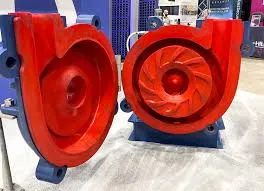Romanian
- Afrikaans
- Albanian
- Amharic
- Arabic
- Armenian
- Azerbaijani
- Basque
- Belarusian
- Bengali
- Bosnian
- Bulgarian
- Catalan
- Cebuano
- Corsican
- Croatian
- Czech
- Danish
- Dutch
- English
- Esperanto
- Estonian
- Finnish
- French
- Frisian
- Galician
- Georgian
- German
- Greek
- Gujarati
- Haitian Creole
- hausa
- hawaiian
- Hebrew
- Hindi
- Miao
- Hungarian
- Icelandic
- igbo
- Indonesian
- irish
- Italian
- Japanese
- Javanese
- Kannada
- kazakh
- Khmer
- Rwandese
- Korean
- Kurdish
- Kyrgyz
- Lao
- Latin
- Latvian
- Lithuanian
- Luxembourgish
- Macedonian
- Malgashi
- Malay
- Malayalam
- Maltese
- Maori
- Marathi
- Mongolian
- Myanmar
- Nepali
- Norwegian
- Norwegian
- Occitan
- Pashto
- Persian
- Polish
- Portuguese
- Punjabi
- Romanian
- Russian
- Samoan
- Scottish Gaelic
- Serbian
- Sesotho
- Shona
- Sindhi
- Sinhala
- Slovak
- Slovenian
- Somali
- Spanish
- Sundanese
- Swahili
- Swedish
- Tagalog
- Tajik
- Tamil
- Tatar
- Telugu
- Thai
- Turkish
- Turkmen
- Ukrainian
- Urdu
- Uighur
- Uzbek
- Vietnamese
- Welsh
- Bantu
- Yiddish
- Yoruba
- Zulu
Telephone: +86 13120555503
Email: frank@cypump.com
iul. . 27, 2024 06:15 Back to list
Designing Efficient Vacuum Pumps for Optimizing Slurry Tanker Performance and Operational Reliability
Vacuum Pump for Slurry Tankers An Essential Tool for Efficient Operations
In the world of industrial operations, especially those involving the transportation of liquids and semi-solids, vacuum pumps play a crucial role. One particular application of vacuum pumps that has gained significant traction is in slurry tankers. These vehicles, designed for the transportation of slurry – a mixture of solid and liquid – rely heavily on efficient and effective pumping systems to ensure smooth operations.
Understanding Slurry Tankers
Slurry tankers are specialized vehicles tasked with the job of transporting various types of slurries, ranging from agricultural waste to industrial by-products. These tankers are essential in sectors such as agriculture, mining, and wastewater management. The nature of the materials involved means that proper handling and containment are paramount, necessitating reliable pumping systems to load and unload the contents efficiently.
The Role of Vacuum Pumps
Vacuum pumps serve several important functions in slurry tankers. Primarily, they create a vacuum that allows the tanker to effectively draw in the slurry. Unlike traditional pumping systems that may rely on gravity or positive pressure to move substances, vacuum pumps generate a pressure differential that enables the liquid and solid mixture to be sucked into the tank. This method is advantageous for several reasons
1. Efficiency Vacuum pumps can significantly reduce loading times, making operations faster and more productive. By creating a vacuum, they can quickly and effectively transfer slurry from the source to the tanker without the need for heavy machinery or complex systems.
2. Reduced Spillage The enclosed system of a vacuum pump minimizes the risk of spillage during loading and unloading. This is particularly important when dealing with hazardous materials or sensitive environments, as it helps maintain safety and compliance with regulatory guidelines.
3. Versatility Vacuum pumps can handle a wide range of slurry types, from thick agricultural fertilizers to more watery industrial sludge. This versatility means that a single tanker can be used for multiple applications, enhancing overall operational efficiency.
vacuum pump for slurry tanker

4. Cost-Effectiveness By streamlining the loading and unloading processes, vacuum pumps can lead to significant cost savings. Faster operations mean lower labor costs and improved equipment utilization, making these systems a wise investment for many businesses.
Types of Vacuum Pumps
There are several types of vacuum pumps suitable for use in slurry tankers. Common options include
- Diaphragm Pumps Known for their ability to handle thick slurries, diaphragm pumps are a popular choice in agricultural applications. They are also relatively easy to maintain and operate.
- Rotary Vane Pumps These pumps provide a robust solution for various types of slurries. Their design allows for smooth operation under different conditions, making them ideal for industrial settings.
- Liquid Ring Pumps Especially beneficial for slurries with a high solid content, liquid ring pumps provide effective suction while maintaining a smooth flow. They are often used in situations where the slurry may contain abrasive particles.
Conclusion
The integration of vacuum pumps into slurry tankers has revolutionized the way industries manage the transportation of liquids and solids. By enhancing efficiency, safety, and versatility, these systems have become indispensable tools across multiple sectors. As operational demands continue to evolve, the adaptation of vacuum pump technology in slurry tankers will likely expand, leading to even more innovative solutions for fluid management. In an era where efficiency and sustainability are increasingly critical, the vacuum pump stands out as a vital component of modern industrial practices.
-
ISG Series Vertical Pipeline Pump - Chi Yuan Pumps Co., LTD.|High Efficiency, Energy Saving, Low Noise
NewsJul.30,2025
-
ISG Series Vertical Pipeline Pump- Chi Yuan Pumps|High Efficiency&Low Noise
NewsJul.30,2025
-
ISG Series Vertical Pipeline Pump-Chi Yuan Pumps Co., LTD.|High Efficiency&Energy Conservation
NewsJul.30,2025
-
ISG Series Vertical Pipeline Pump - Chi Yuan Pumps Co., LTD.|Advanced Hydraulic Design&Energy-Efficient Solutions
NewsJul.30,2025
-
ISG Series Vertical Pipeline Pump - Chi Yuan Pumps Co., LTD.
NewsJul.30,2025
-
ISG Series Vertical Pipeline Pump - Chi Yuan Pumps Co., LTD.|energy-efficient fluid handling&industrial durability
NewsJul.30,2025










